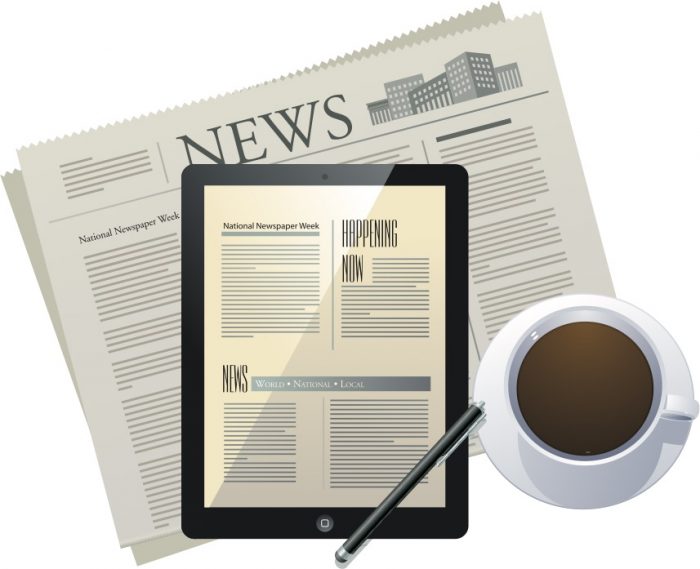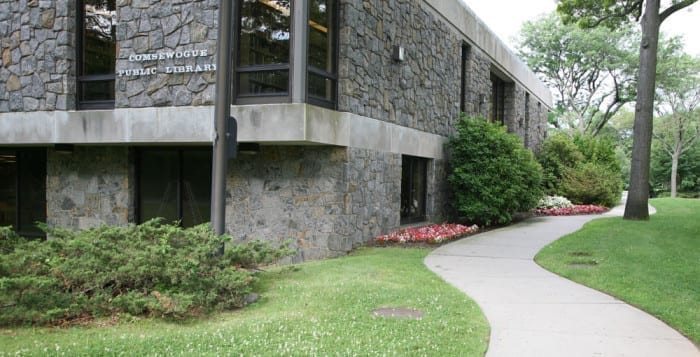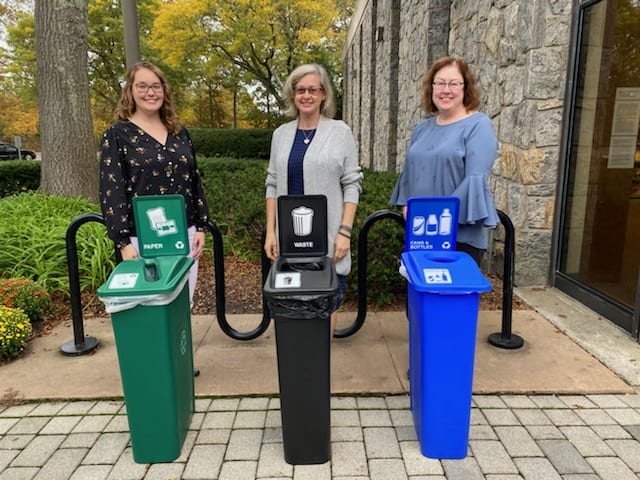The Public Libraries of Suffolk County recently announced that it reached 2.9 million digital book checkouts on the download platform, Livebrary.com, in 2021.
The site, consisting of 56 libraries in Suffolk County, is one of 121 public library systems worldwide that surpassed 1 million checkouts.
According to a press release sent out by PLSC, this record-breaking milestone illustrates the continued growth and importance of library digital lending of e-books and audiobooks, especially after a prolonged period of building closures due to the global pandemic.
“The Public Libraries of Suffolk County continue to meet the needs of their communities by providing patrons with much-needed access to entertainment and learning opportunities through e-books and audiobooks,” Kevin Verbesey, director of the Suffolk Cooperative Library System, said in a statement.
PLSC has been providing readers 24/7 access to e-books and audiobooks for several years through the Libby app, the library reading app created by OverDrive allowing for readership to grow each year.
Readers in Suffolk County just need a valid library card from a member library to access digital books from Livebrary’s OverDrive-powered digital collection, and can use any device including Apple, Android, Chromebook or Kindle to read or listen.
Comsewogue Public Library in Port Jefferson Station had 125,284 digital book downloads, combined. Of that total, 94,478 were e-books and 30,806 were e-audiobooks. The Port Jefferson Free Library had 51,117 downloads overall, and Emma S. Clark Memorial Library patrons in Setauket downloaded 156,576 e-books, e-audiobooks and e-magazines.
“Our library’s patrons are among the heaviest users of e-books in the county, and we know that they value the ease, convenience and accessibility that e-books provide,” said Ted Gutmann, director at Emma S. Clark. “Although we love seeing our patrons in the library, not everyone is comfortable or indeed able to get to the library. E-books are a perfect alternative for those who can’t make it out to the library. Also, the convenience of instant access can’t be overlooked. I’ll often find myself at home reading a review or hearing a reference to a particular book that sounds interesting. It’s so nice to be able to just log on and download the book and start reading right away.”
Middle Country Public Library had 98,285 downloads in 2021.
“Over the past seven years, we have seen a steady increase in our downloadable materials,” said Sophia Serlis-McPhillips, director of MCPL. “We weren’t surprised that the numbers spiked during the pandemic, we were however, pleased that our patrons were able to access library materials such as e-books and e-audios either for recreational or educational purposes during that time. We also saw an influx of new library card applications, presumably new users seeking to access Livebrary.com.”
The highest-circulating title Livebrary readers borrowed in 2021 for both e-books and e-audiobooks was “The Four Winds” by Kristin Hannah. The top-circulating genre — romance — represents the most popular in a vast catalog that also includes mystery, biography and autobiography, children/young adult and more.
In Smithtown, 9% of the total downloads for the entire county came from The Smithtown Library with 266,304 digital downloads in 2021.
“The Smithtown Library is happy to know that our patrons continue to see the value of their library in the Smithtown community,” said Robert Lusak, director. “Our aim is to not just be about providing materials from the physical collections inside our buildings, but to also provide access to digital materials. We believe that e-books and audiobooks are equally as vital to our service program.”
Long Island Health Collaborative library study
These numbers also come just as the Long Island Health Collaborative released the results of a two-year study which examined health and social support issues encountered by public library staff and the patrons they serve. The survey proved that public libraries are essential to Long Islander’s health and wellness.
The LIHC, a coalition of 300-plus organizations all involved in improving the health of Long Islanders, helped coordinate and partially fund the research.
Public health researchers from Stony Brook University and Adelphi University interviewed library staff at randomly selected libraries throughout Long Island during December 2017 and February 2020.
They found that there was a difference between the needs and program offerings based on the socioeconomic status of the neighborhood in which a library is located. Libraries in lower-resourced communities generally ran more basic social assistance programs and those in higher-resourced communities offered more enrichment/leisure-type programming.
Researchers said they were not surprised at the results, as social determinants of health — those factors outside of medicine that influence an individual’s health — account for nearly 80% of health outcomes. These factors include education, poverty, access to transportation, safe and affordable housing, health insurance coverage, and access to nutritious and affordable foods, among others.
Starting with a list of 113 public libraries, 18 libraries in Suffolk County (from 26 randomly selected) and 14 libraries in Nassau County (from 27 randomly selected) consented to participate in the Long Island Libraries Qualitative Research Project.
A total of 96 interviews were completed, recorded and transcribed. Approximately three staff members at each library were interviewed, and the transcribed interviews were coded based on themes that emerged from the interviews across sites.
This resulted in a coding schema with 11 categories and many subthemes within each category.
“Public libraries are hidden gems in our communities,” said Janine Logan, director of the LIHC. “They are a trusted resource. Increasingly, public libraries play a key role in delivering some of the health and social support services an individual requires to live his/her best life.”







